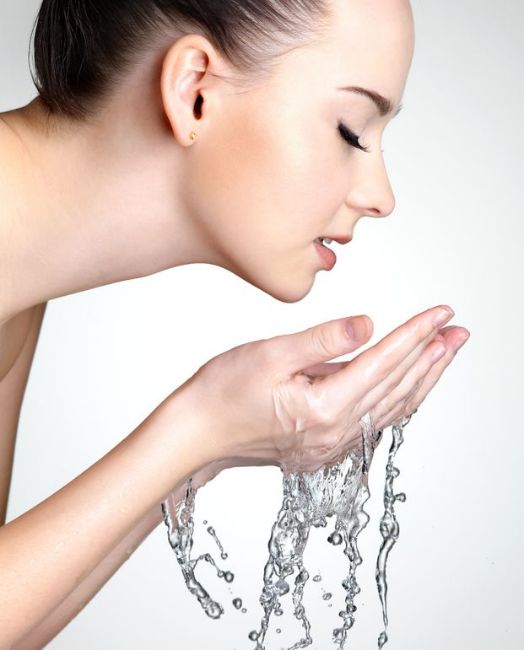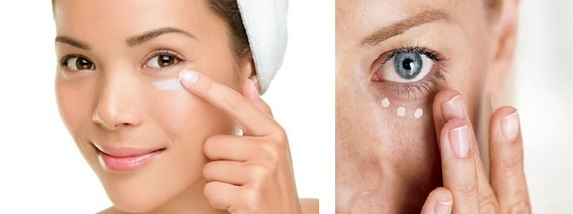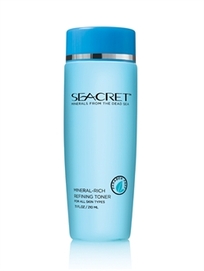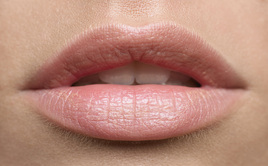by Michele Bender for iVillage
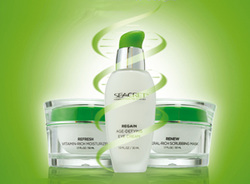
1. Have Patience With New Products
You come home from the store excited about a new product's ability to smooth your wrinkles, lighten your brown spots and clear up your acne. But a few days in, the lack of results leaves you frustrated. So you toss it and try another. "Switching products and changing up your skin care routine too quickly can create issues like redness, irritation and breakouts, and make it difficult to find the root cause of your skin problems," explains Mitchell Chasin, M.D., a dermatologist and medical director of Reflections Centers for Skin & Body in New Jersey. You've got to give a new product a chance. "A good moisturizer will yield results immediately, but other products, such as those containing lightening agents or an acne-fighting topical product might take a month or more for appreciable results to be seen." Wait four to six weeks to gauge results -- it takes that long for skin cells to turn over.
You come home from the store excited about a new product's ability to smooth your wrinkles, lighten your brown spots and clear up your acne. But a few days in, the lack of results leaves you frustrated. So you toss it and try another. "Switching products and changing up your skin care routine too quickly can create issues like redness, irritation and breakouts, and make it difficult to find the root cause of your skin problems," explains Mitchell Chasin, M.D., a dermatologist and medical director of Reflections Centers for Skin & Body in New Jersey. You've got to give a new product a chance. "A good moisturizer will yield results immediately, but other products, such as those containing lightening agents or an acne-fighting topical product might take a month or more for appreciable results to be seen." Wait four to six weeks to gauge results -- it takes that long for skin cells to turn over.
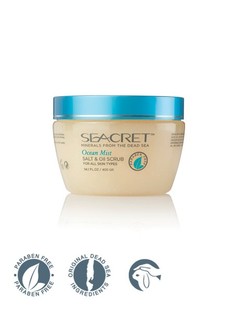
2. Remove Dead Skin Cells
The skin's ability to slough off dead cells slows down considerably once you hit the big 3-0. After that, you need to help it along. "Regular exfoliation eliminates the layer of dead skin cells that accumulate over time, revealing fresher, more supple-looking skin," says Dr. Chasin. "Exfoliating also allows topical products such as retinoids and moisturizers to be better absorbed by the skin." Choose between chemical exfoliants, like salicylic or glycolic acid, or a mechanical one, like a granular scrub. Apply it to clean, damp skin using gentle circular motions with your fingertips. Boost skin's hydration level by exfoliating two to three times a week in the shower before applying moisturizer. "This way [moisturizer] can be absorbed more efficiently because dead cells, which can block penetration, are sloughed off," says Fusco. Exfoliating also helps the skin better absorb other products -- like wrinkle creams and acne fighters -- and it gives skin a more youthful glow.
The skin's ability to slough off dead cells slows down considerably once you hit the big 3-0. After that, you need to help it along. "Regular exfoliation eliminates the layer of dead skin cells that accumulate over time, revealing fresher, more supple-looking skin," says Dr. Chasin. "Exfoliating also allows topical products such as retinoids and moisturizers to be better absorbed by the skin." Choose between chemical exfoliants, like salicylic or glycolic acid, or a mechanical one, like a granular scrub. Apply it to clean, damp skin using gentle circular motions with your fingertips. Boost skin's hydration level by exfoliating two to three times a week in the shower before applying moisturizer. "This way [moisturizer] can be absorbed more efficiently because dead cells, which can block penetration, are sloughed off," says Fusco. Exfoliating also helps the skin better absorb other products -- like wrinkle creams and acne fighters -- and it gives skin a more youthful glow.
| 3. Establish A Skincare Routine Your skincare regimen shouldn't take longer than an episode of "Modern Family." In fact, you should be able complete it in the time it takes for one -- maybe two -- commercial breaks. "We recommend that every patient use a high-quality cleanser, moisturizer and sunscreen," says Chasin. Depending on the type and condition of your skin, you can add treatment products like retinoids (for wrinkles and acne), antioxidants (to prevent sun damage and aging) or an acne fighter (like benzoyl peroxide or salicylic acid). "The goal is to keep things as simple as possible so you have an easy regimen that addresses your skin care issues," says Chasin. "Sometimes you can wind up over treating and doing more harm than good." Chasin suggests finding one skincare line you love and stick with it. "While it's okay to mix and match products from different lines, products from a single line have been formulated to work together," he says. | FREE |

4. Eat Plenty Of Healthy Fats
You've probably heard about the heart-healthy impact of omega-3 fatty acids, but their benefits also go skin deep. "Many skin issues, including psoriasis, eczema and some acne, are made worse -- redder, angrier and more puffy -- by inflammation in the body," explains Susan Blum, M.D., assistant clinical professor of preventative medicine at Mount Sinai School of Medicine and founder of The Blum Center for Health in Rye Brook, New York. "Omega-3's reduce that inflammation." The body also needs these fats to help produce its own natural oils and retain moisture for soft, hydrated skin. You can find these good-for-you fats in salmon, sardines, walnuts, flaxseeds and soybeans.
You've probably heard about the heart-healthy impact of omega-3 fatty acids, but their benefits also go skin deep. "Many skin issues, including psoriasis, eczema and some acne, are made worse -- redder, angrier and more puffy -- by inflammation in the body," explains Susan Blum, M.D., assistant clinical professor of preventative medicine at Mount Sinai School of Medicine and founder of The Blum Center for Health in Rye Brook, New York. "Omega-3's reduce that inflammation." The body also needs these fats to help produce its own natural oils and retain moisture for soft, hydrated skin. You can find these good-for-you fats in salmon, sardines, walnuts, flaxseeds and soybeans.
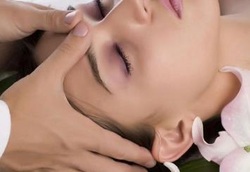
5. Rub Your Skin Radiant
A facial massage can "smooth away laugh lines, crow's feet and wrinkles on the forehead, as well as provide the skin with a deep glow and nourishment," says Pratima Raichur, N.D. ayurvedic physician and spa owner. Author of "Absolute Beauty: Radiant Skin and Inner Harmony Through the Ancient Secrets of Ayurveda," she suggests using sesame, almond or olive oil for dry skin, sunflower oil for combination or sensitive skin, or safflower for oily skin. Move your middle finger clockwise for 20 to 30 seconds to massage these spots on your face:
-- The center of the chin and corners of mouth
-- The bone between the nose and upper lip
-- The outside corners of the nose where the nostrils flare
-- The center of the cheekbones
-- The temples and the forehead between the brows (called the third eye)
Instead of a using the massage technique on the delicate parts of your face, you can light press them with your finger tips for the same result. With your thumbs, press upward on the inside corners of eyebrows at the bridge of the nose, and then move to the lower lids above the cheekbones. Finish by gently pinching your eyebrows with your thumb and forefinger, moving from the inside out.
A facial massage can "smooth away laugh lines, crow's feet and wrinkles on the forehead, as well as provide the skin with a deep glow and nourishment," says Pratima Raichur, N.D. ayurvedic physician and spa owner. Author of "Absolute Beauty: Radiant Skin and Inner Harmony Through the Ancient Secrets of Ayurveda," she suggests using sesame, almond or olive oil for dry skin, sunflower oil for combination or sensitive skin, or safflower for oily skin. Move your middle finger clockwise for 20 to 30 seconds to massage these spots on your face:
-- The center of the chin and corners of mouth
-- The bone between the nose and upper lip
-- The outside corners of the nose where the nostrils flare
-- The center of the cheekbones
-- The temples and the forehead between the brows (called the third eye)
Instead of a using the massage technique on the delicate parts of your face, you can light press them with your finger tips for the same result. With your thumbs, press upward on the inside corners of eyebrows at the bridge of the nose, and then move to the lower lids above the cheekbones. Finish by gently pinching your eyebrows with your thumb and forefinger, moving from the inside out.
6. Apply Products Like A Professional
Ever wonder why spa facials feel so good? It's not just the products they use, but the application techniques. To avoid stretching or damaging your skin, Raichur says do not scrub your face or apply any products in an up and down motion. "Cleanser should be massaged in gently, using upward and outward circular motions," explains Raichur. Eye care products should also be applied to the skin in a circular direction from the outside corner of the eye to the inside, using the ring finger to ensure the gentlest touch. When it comes to moisturizing, lightly swipe lotion on your face -- massaging it too deeply can clog pores.
Ever wonder why spa facials feel so good? It's not just the products they use, but the application techniques. To avoid stretching or damaging your skin, Raichur says do not scrub your face or apply any products in an up and down motion. "Cleanser should be massaged in gently, using upward and outward circular motions," explains Raichur. Eye care products should also be applied to the skin in a circular direction from the outside corner of the eye to the inside, using the ring finger to ensure the gentlest touch. When it comes to moisturizing, lightly swipe lotion on your face -- massaging it too deeply can clog pores.
| 7. Change With The Seasons Your clothes, mood and activities change with the seasons -- so should your skincare. In the winter, cold temps and high indoor heat dry your skin. "Really dry skin diminishes the natural barrier between the skin and the environment because the skin cells separate from each other and dry out," says Kenneth Beer M.D., a board certified dermatologist in West Palm Beach, Fla. "So winter skin needs a cream moisturizer to repair it." This isn't the case in summer. In fact, a rich cream would not only feel heavy in warm weather months, but when combined with sweat could clog pores and cause breakouts. You're better off with a lighter lotion in the summer -- even one that's oil free since skin isn't as dry. These seasonal rules should be applied to the whole body, too. |
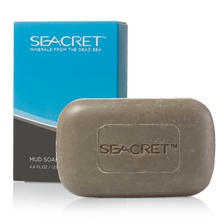
8. Go Soap-Free
Soap and cleanser ingredients, like sodium lauryl sulfate, strip skin of the skin-softening oils it produces called sebum. "This can leave skin dry, red and irritated," says Fusco. Instead, wash your face (and body) with a soap-free and sodium lauryl sulfate-free cleanser made for your skin type. These products still clean your skin but without dehydrating it.
Soap and cleanser ingredients, like sodium lauryl sulfate, strip skin of the skin-softening oils it produces called sebum. "This can leave skin dry, red and irritated," says Fusco. Instead, wash your face (and body) with a soap-free and sodium lauryl sulfate-free cleanser made for your skin type. These products still clean your skin but without dehydrating it.

9. Stay Vigilant Against Acne
It's a myth that acne-prone skin is dirty skin. Breakouts are caused by bacteria, oil and/or clogged pores, and can actually worsen if you over wash. The key to a clear complexion is treating acne-prone skin daily, not just when a pimple pops up. "This helps keep pores clean and control bacteria," says Ranella Hirsch, M.D., a Boston-based dermatologist. Use a cleanser both in the morning and at night. (For dry or sensitive skin, use a creamy cleanser; for oily, use a gel formula). During a time you typically break out (before your period; when you're stressed), Dr. Hirsch advises leaving a cleanser on your face for five to 10 minutes and your back or chest for 10-15 minutes.
It's a myth that acne-prone skin is dirty skin. Breakouts are caused by bacteria, oil and/or clogged pores, and can actually worsen if you over wash. The key to a clear complexion is treating acne-prone skin daily, not just when a pimple pops up. "This helps keep pores clean and control bacteria," says Ranella Hirsch, M.D., a Boston-based dermatologist. Use a cleanser both in the morning and at night. (For dry or sensitive skin, use a creamy cleanser; for oily, use a gel formula). During a time you typically break out (before your period; when you're stressed), Dr. Hirsch advises leaving a cleanser on your face for five to 10 minutes and your back or chest for 10-15 minutes.
| 10. Use Facial Wipes & Toner Keep them in your car, gym bag and by your bed so you can clean your skin even if you're not near a sink. Use a toner to remove dirt and makeup that can combine with sweat to cause breakouts. Keep them by your bed so you can wipe off your makeup on nights you're too tired to go to the bathroom sink. | 11. Treat Your Lips They're skin, too! Your lips need the same TLC as the rest of your face, like exfoliating, moisturizing and sun protection. "Dry, chapped lips can make you look older," says Katie Rodan, M.D., associate clinical professor of dermatology at Stanford University and author of "Write Your Skin a Prescription for Change." And severely dry lips can crack and get infected. Exfoliate lips gently with a lip scrub, toothbrush or washcloth. Re-apply lip balm often throughout the day and wear sunscreen any time you go outdoors. |

12. Get Moving
The benefits of exercise go beyond lean thighs and flatter abs. "Exercise increases circulation so nutrients can get to the skin better," says Dr. Malik. This helps heal skin conditions like acne and aids in giving you a glow. "Exercise also reduces the stress hormone epinephrine which causes constriction of blood flow and that can make you lose your glow," adds Malik. Just wash your face before and after you workout to keep pores clear of sweat and dirt.
The benefits of exercise go beyond lean thighs and flatter abs. "Exercise increases circulation so nutrients can get to the skin better," says Dr. Malik. This helps heal skin conditions like acne and aids in giving you a glow. "Exercise also reduces the stress hormone epinephrine which causes constriction of blood flow and that can make you lose your glow," adds Malik. Just wash your face before and after you workout to keep pores clear of sweat and dirt.

13. Get Your Rest
Quality sleep is the key to more energy, better concentration and a boost in your mood. It also sends under-eye bags packing and keeps dark circles at bay. And sleep just may be the fountain of youth: "Neurotransmitters that keep you young, like growth hormone and serotonin, are released in the brain while you sleep," says Malik.
Quality sleep is the key to more energy, better concentration and a boost in your mood. It also sends under-eye bags packing and keeps dark circles at bay. And sleep just may be the fountain of youth: "Neurotransmitters that keep you young, like growth hormone and serotonin, are released in the brain while you sleep," says Malik.
| 14. Eat Your Way To Healthy Looking Skin Certain vitamins do a complexion good. Vitamin C can help with collagen production and protect against sun damage, so fill up on kiwis, strawberries, oranges and bell peppers. Beta-carotene, found in sweet potatoes, carrots, and other orange veggies, is a nutrient that's converted to vitamin A in the body, also known as the indispensable anti-aging retinol. To hydrate your skin, choose vitamin E-rich foods like broccoli, nuts, sunflower seeds, olives and spinach. Vitamin E is also believed to help reduce sun damage. | 15. Hydrate Your Skin "Moisturizing the skin helps plump it up, making it look smoother -- at least temporarily," says Rodan. Dry skin highlights wrinkles: Think of a grape versus a raisin -- the only difference is water. Put moisturizer on daily within three minutes after washing your face. "For optimal hydration, blot skin with a towel and apply moisturizer to damp skin to lock moisture into it," adds Fusco. And always moisturize before applying makeup --way it acts like a primer, creating a smoother surface and filling in any fine lines so makeup doesn't settle into them. |
